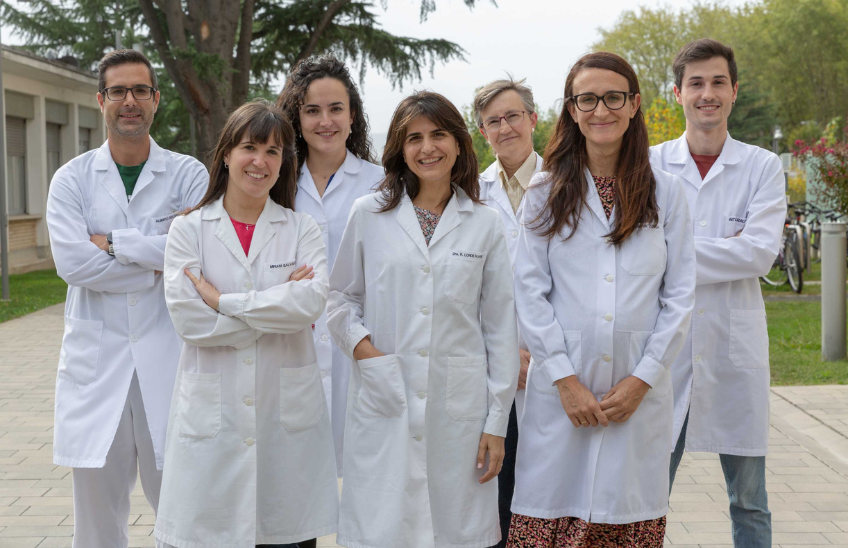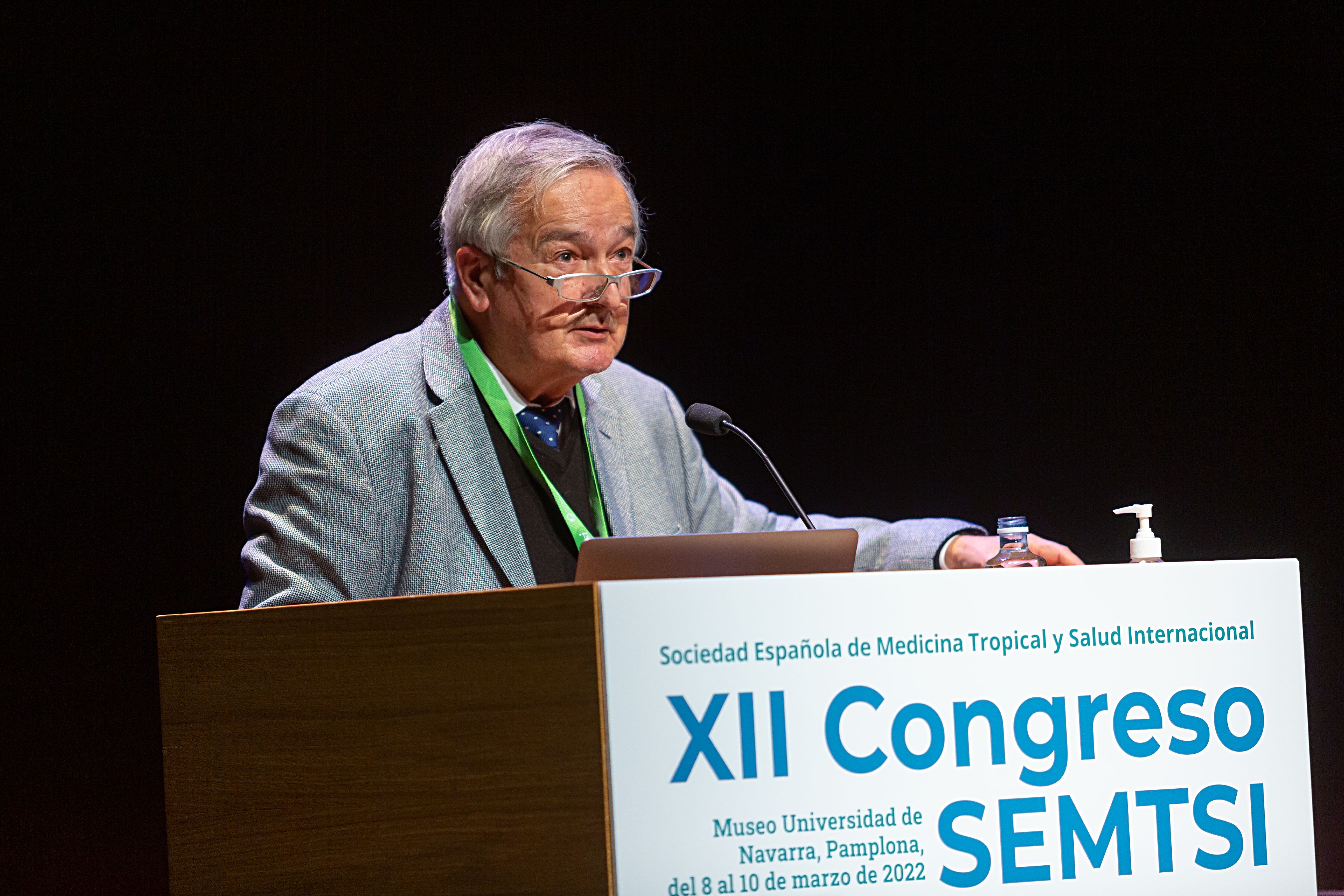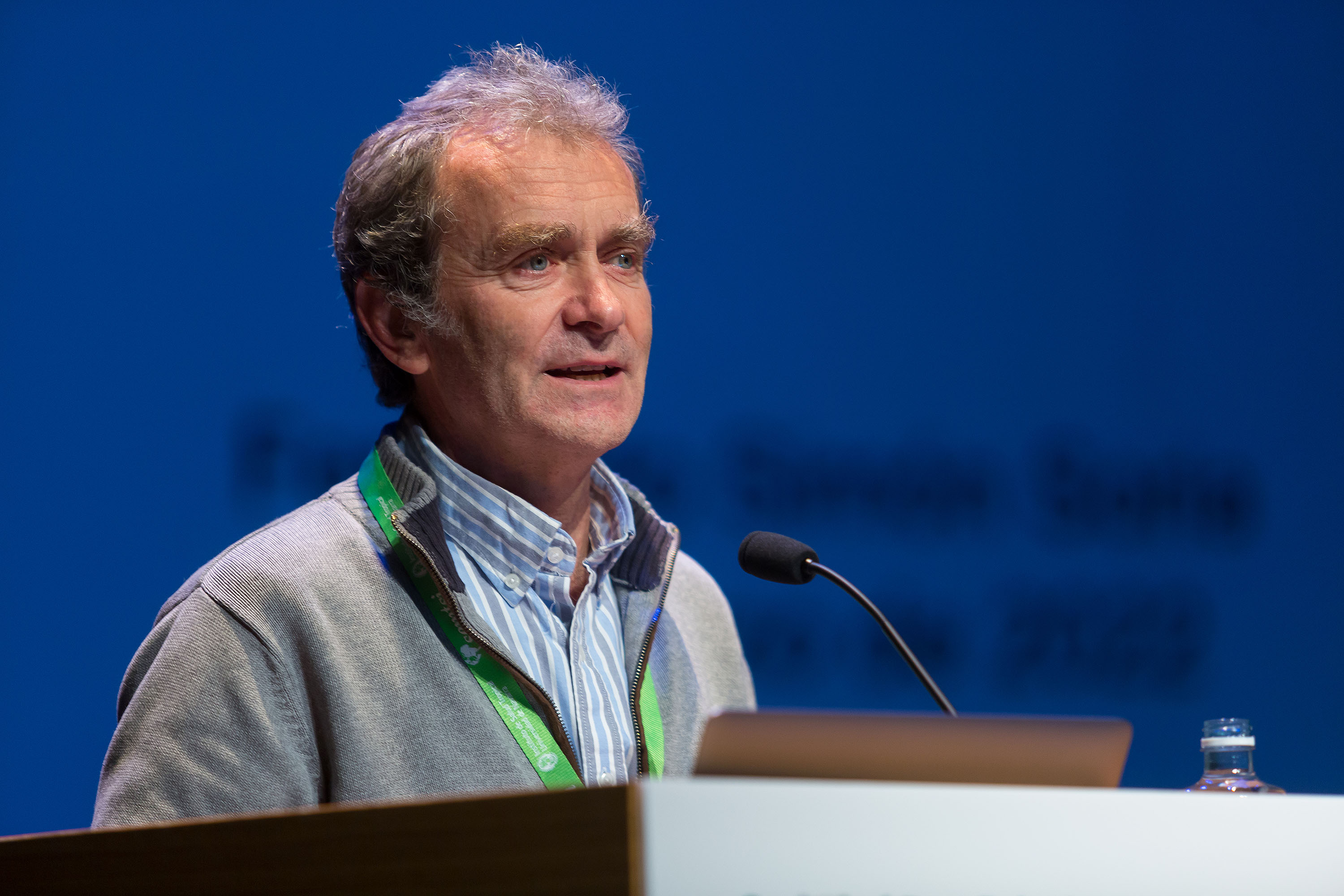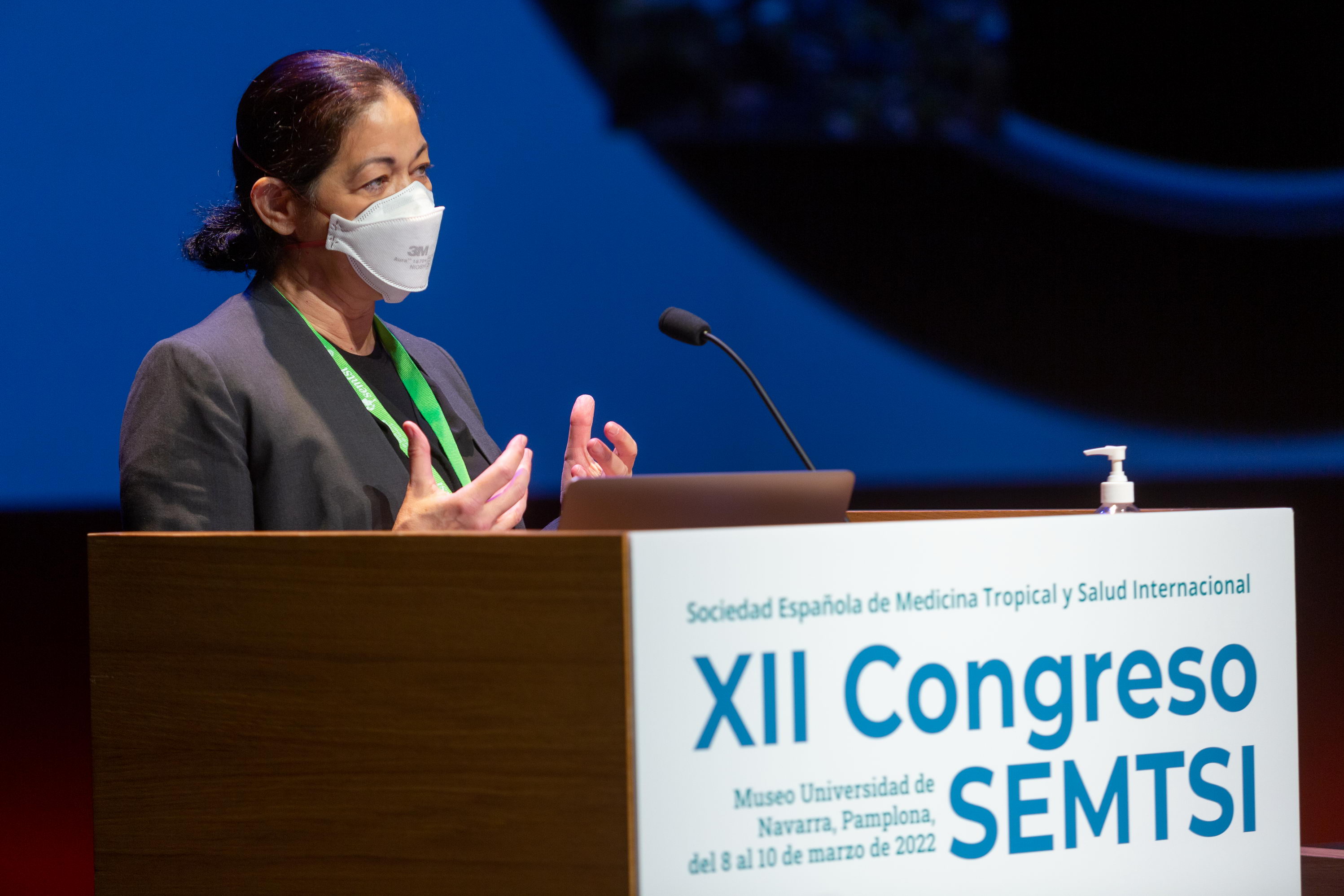"There is a crisis in health related to the deterioration of ecosystems; if certain limits are not respected, there will be irreversible changes".
Jesús Miguel Santamaría, director of the Biodiversity and Environment Institute of the University of Navarra, has intervened in the congress SEMTSI
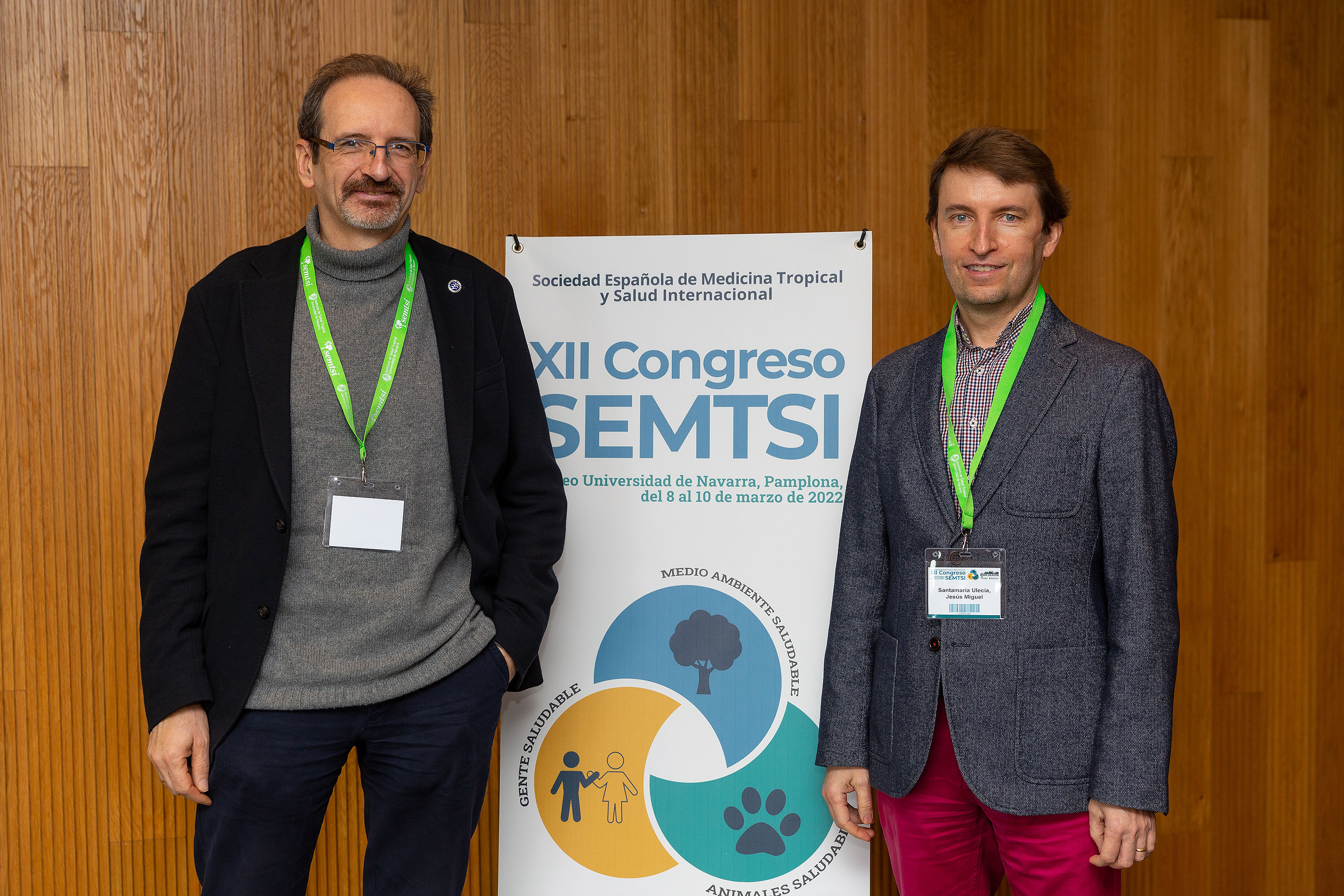
PhotoManuelCastells/University of Navarra researchers Arturo Ariño and Jesús Miguel Santamaría.
10 | 03 | 2022
Every year 12.6 million people die worldwide (1.4 million in Europe, 790,000 in the European Union) due to causes related to the environment. These are some of the data offered today by Jesús Miguel Santamaría, director of Biodiversity and Environment Institute of the University of Navarra. The expert has given the session "Healthy environment", in the framework of the XII congress of the Spanish Society of Tropical Medicine and International Health (SEMTSI) and the Institute of Tropical Health University of Navarra (ISTUN).
"A health crisis is occurring that has to do with the deterioration of ecosystems and requires a holistic vision to address it," he said. Human, animal and environmental health are intrinsically linked and interdependent, said Full Professor, who reviewed the environmental issues that have the greatest impact on human health - including Economics-.
Among them, the expert referred to air quality (mainly due to exhibition tropospheric ozone, nitrogen dioxide and particulate matter), indoor pollution (due both to design of new intelligent buildings and to some materials used in everyday life that release toxic compounds such as cleaning products or paints), water quality (presence of mercury, microplastics and eutrophication due to excess nutrients) and the effects of climate change (heat waves, worsening air quality, increase in water-, food- and vector-borne diseases).
Santamaría stressed the importance of not exceeding the planetary limits established by academic community for the proper functioning and resilience of the Earth - these include issues such as biodiversity loss, climate change, water or land use, emerging pollutants, among others. "Failure to respect these limits will lead to abrupt and irreversible changes.
"A good walk in the woods is as effective as a Prozac tablet".
congress Arturo Ariño researcher of Biodiversity and Environment Institute and director scientist of the Science Museum of the University of Navarra, who insisted on the importance of safeguarding biodiversity, "one of the greatest sources of health we have".
"A good walk in the forest is as effective as a Prozac pill," said Arturo Ariño, who emphasised the importance of managing natural, agricultural and urban ecosystems for people's health promote . He also outlined some of the main causes of biodiversity loss - overexploitation of resources, invasive species, habitat change, pollution and climate change - as well as the consequences for humans. "It is imperative to stop biodiversity loss and habitat changes leading to extinctions and loss of wealth Genetics".
Ariño noted the dependence of human health on biodiversity and highlighted five factors that have an immediate connection: health, resources, therapies, ecosystem services and landscapes.
The congress SEMTSI has brought together experts from all over the world at the University of Navarra Museum to reflect on the role of globalisation in the transmission of infectious diseases between humans and animals.

